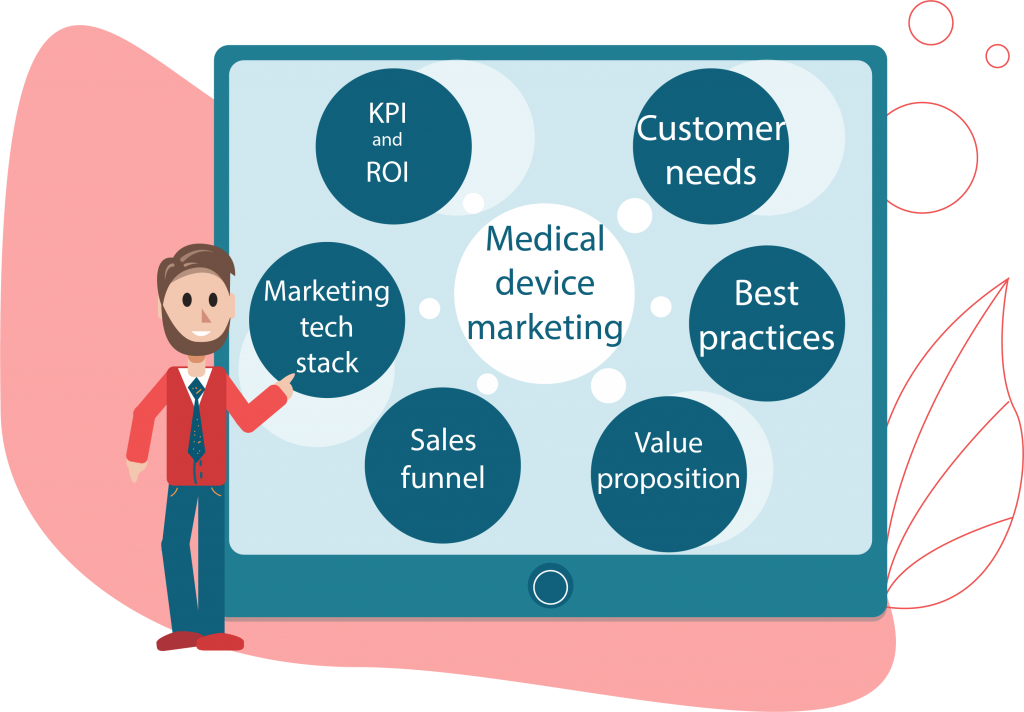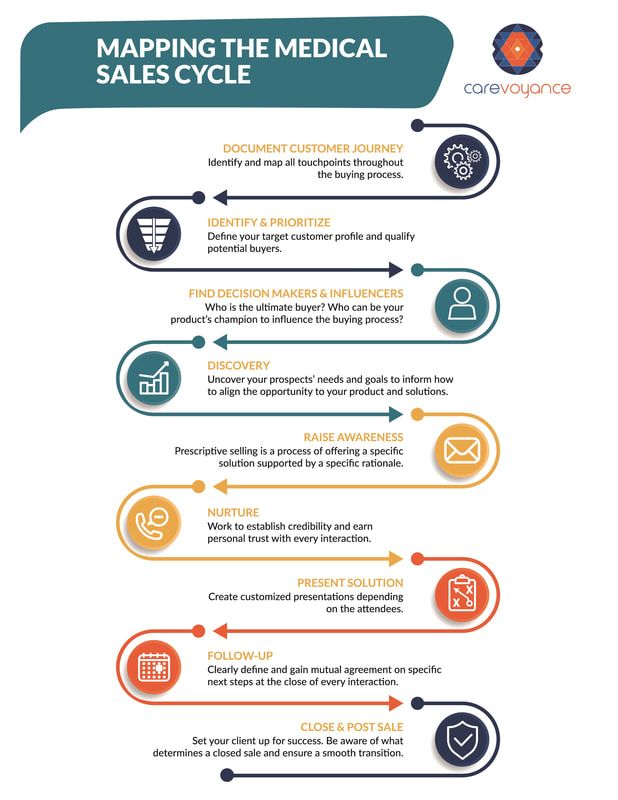Sales 101 for MedTech Startups
With healthcare being a sensitive domain, sales can be a daunting challenge for MedTech startups. Identifying the right prospects, the proper channels, and the right sales process is critical to hitting an impressive stride from the start.
To improve your sales figures, implementing a robust sales channel is paramount. However, the picture is hardly any simpler here. Some channels take longer than others to close but come with a higher payoff. Another important factor is getting your pricing strategy right. All these factors massively influence the sales function and its activities.
To understand sales in a MedTech startup, it is essential to start from the basics. A Sales 101 lesson is not only beneficial for a growing company; it is paramount to keep abreast of a sensitive domain and a rapidly evolving audience. We spoke to Mukul Bagga, Managing Director at Medicom Healthcare, to get his insights on the critical aspects of sales that MedTech startups should know and implement, particularly if they seek a primer in the sales domain.

Creating The Right Environment For Sales
Before introducing the most prominent Sales 101 methods for MedTech startups, it is vital to lay the groundwork. Engendering a suitable environment for sales in a Medtech startup is indispensable in understanding the function and its attendant activities. Mukul lists out a three-pronged approach to creating the right circumstances pre-sales.
1. Validate your product and its features.
To have a unique selling proposition, you need to have a product that meets the demands of an unsaturated market. Run focus groups and talk to prospective customers post-MVP (and before the large-scale production/launch) to get a feel for your customer’s reaction. Also, it is imperative with a startup venturing into the medical space to ensure all regulatory approvals are in place.
2. Have a go-to-market plan.

Profile and segment your target audience. These customer profiles help both marketing and sales align their content with speaking to the ideal customer. Profiling also gives you a sense of who your key stakeholders are going to be.
If you’re fighting for market space with one or more competitors, the marketing strategy should highlight how your product is different. Have a smart pricing plan – one that does not devalue your product nor turn customers off. Strike the right balance.
Another important aspect is selecting channels and communication objectives for marketing.
It’s also vital to plan what will be needed to execute this go-to marketing strategy – how many resources are required, what capital needs to be allocated, how should the org structure be positioned, etc.
3. Go to the source; sell to and through doctors.
Engaging with doctors early on during the product development cycle will help you achieve two key outcomes – valuable feedback for your product right from the source and an advocate for your product.
Doctors are at the capstone of your customer pyramid. Once they own the product concept, they will help drive it down the hierarchy through forums such as advisory boards, CME, presentations at congresses, paper publications, etc.
Sales 101 For MedTech Startups
1. Creating a well-thought-out sales strategy helps design a template for an effective sales process.

The sales strategy must be exhaustive for this to work – define the markets you want to target, create a customer list, define sales roles based on your target group, decide how many representatives are needed and their hierarchy, etc. This allows you to put in place the complete sales cycle with key players defined.
2. Leadership will play an important role in sales.
The sales vertical will need a decisive leader to lead from the front, and a startup founder should ideally play this role, says Mukul. However, if none of the founders can take up the sales role, the startup should consider hiring a senior, experienced sales executive.
3. Talk to your customers and learn from their feedback.
Biosense (manufacturer and exporter of medical diagnostic equipment), Remidio (medical device company), Bempu (reduces the mortality rate of newborns), and Yostra (healthcare technology firm for diabetic neuropathy and wound care) are real-world examples of MedTech companies who have managed to put in place a highly optimal sales process by staying close to their customers, getting constant feedback and then adapting their products/pricing /solutions to suit the suggestions.
4. Is there a way to shorten the sales cycle?
In short, no, says Mukul. The sales cycle can be optimized to take the right amount of time but not shortened. The sales cycle, especially for startups with an innovative first-in-class product, will involve multiple stakeholders resulting in a longer and complex closing cycle. That is just the nature of the domain.
The time for closing and the value of the payoff, however, varies across channels. Prospects who are a proprietary setup, such as a doctor with a self-owned clinic, will take up the shortest time for a sale (with the payoff also low). With a single proprietary setup, the doctor is the scientific evaluator & financial decision-maker, making your sales cycle narrow and focused, ergo, shorter.
On the other hand, some of the most extended sales cycles are seen with government accounts with more bureaucracy to tackle. The payoff, however, is also much higher. While there is no trick to shortening the sales cycle, selecting the right channel will help you control the sales cycle length.
Final Word By Mukul
Although sales activities come post-launch, planning for sales shouldn’t. These strategies should help you, as a MedTech startup, create a sales engine that works smoothly right from the beginning and keep your worries at bay. As Mukul put it, focus on detailed stakeholder mapping, closely monitor the progress of the lead nurturing process, maintain proper communication across the organizational hierarchy, have strong negotiation skills at all levels, and be well informed while making decisions.
With the right tools at your disposal, sales can prove an indispensable means for your Medtech startup to grow.
About the author
Mukul Bagga has over 25 years of experience in healthcare handling commercial leadership roles across sectors such as pharmaceuticals, diagnostics etc. He is passionate about the use of technology to improve access to healthcare. Currently, he is the Managing Director of Medicom Healthcare and a senior advisor with Villgro Innovation Foundation. He has been associated in leadership positions with Quest Diagnostics, Novartis, Johnson & Johnson & multiple other companies in the past. More about Mukul: https://www.linkedin.com/in/mukul-bagga-5908108/
Subscribe to Newsletter
Recent Posts
- Bridging The Gaps Between Treatment and Diagnosis: The FastSense Approach
- Embedded Finance in Healthcare Industry in India: Collaboration with FinTech and MedTech Companies
- Thermaissance: Where Healthcare and Quality of Life Meet
- Case Study: TeraLumen
- Emerging new business models in the MedTech industry in India







